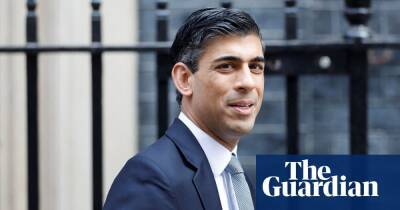The Guardian view on non-dom tax status: them not us
It is not the legality of what the chancellor of the exchequer and his wife do with their money that matters; it’s the message that their choice sends about inequality and unfairness in Britain today. Rishi Sunak lives in Downing Street with his wife and their two children. As chancellor of the exchequer, he is in charge of the UK’s tax system and the country’s finances at a time when everybody’s living costs are soaring and public money is extremely tight. Mr Sunak naturally pays UK taxes on his earnings and assets. His wife, Akshata Murty, does not.
Although she has lived here for much of the past decade, Ms Murty holds non-domiciled tax status in the UK. This means that she pays no UK tax on her overseas earnings, on the basis that her permanent home is not here. Ms Murty is very, very rich indeed. Her stake in her Indian father’s technology business alone is worth an estimated £690m. She would have received around £11.5m in dividends from these shares in the last tax year. If she was a UK taxpayer, the Treasury would have taxed that at a rate of 38.1%, bringing in well over £4m a year to the public finances.
Ms Murty has broken no law by shielding that money from the Treasury. Her office stresses that she has also paid overseas taxes on the earnings. The UK’s independent adviser on ministerial interests has approved the arrangements. Non-dom tax status, after all, has existed since the colonial era. Regrettably, it remains legal. It is based on the idea that while a person may live here all year round, as Ms Murty does, they regard a foreign country, in this case India, as their true home. At the last count, some 75,700 individuals claimed non-dom status, thus depriving the Treasury of nearly £8bn in taxes and national
Read more on theguardian.com



















